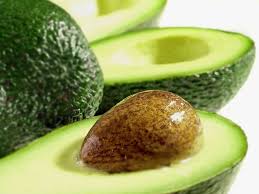The term "organic" has undergone a significant transformation in meaning. Until the mid-20th century, "organic" referred to anything living or derived from living matter. In this context, the idea of an "inorganic tomato" would be a contradiction unless it were a non-biological object like a glass ornament. With few exceptions, such as salt, all food was inherently "organic."
The Birth of "Organic Food": J.I. Rodale's Influence
The meaning of "organic" in food today traces back to 1942 and J.I. Rodale's launch of Organic Gardening magazine. Now considered a pioneer, Rodale advocated for sustainable agriculture by enriching soil with organic matter like animal manure and compost rather than relying on synthetic fertilizers, which were then considered modern advancements. In Rodale's initial definition, farming methods and fertilizers, not the food itself, were "organic," with a primary focus on soil health.
Expanding Definitions and the Need for Standards:
The meaning of "organic farming" soon evolved beyond Rodale's initial focus on fertilizers. As various "organic farmer" associations emerged, differing definitions arose, each reflecting distinct values. Some groups emphasized strict limitations on substances used on soil, crops, and animals, while others embraced a broader philosophy encompassing healthy living, equitable distribution, and wildlife conservation. The wider view ultimately prevailed, with the International Federation of Organic Agriculture Movements (IFOAM) defining organic agriculture as:
"an agricultural system that promotes environmentally, socially, and economically sound production of food, fiber, timber, etc. In this system, soil fertility is seen as the key to successful production. Working with the natural properties of plants, animals, and the landscape, organic farmers aim to optimize quality in all aspects of agriculture and the environment."
This broad definition, however, proved difficult to translate into a clear product label. Consumers faced confusion due to the varying "organic" labels used by different producers and associations.
The USDA Organic Certification: Creating Clarity and Trust:
The U.S. Congress authorized the Department of Agriculture (USDA) in 1990 to establish legally enforceable "USDA Organic" standards and a certification process to address this confusion. This led to the creation of standardized rules in 2002, which are now widely recognized.
Key USDA Organic Standards:
- Crops: Grown without synthetic fertilizers, most synthetic pesticides, and all herbicides (with exceptions for approved biological and botanical controls). Soil fertility is maintained through animal and plant waste (excluding sewage sludge), crop rotation, and cover crops.
- Animals: Raised on organic feed, without growth hormones or antibiotics (except for treating sick animals, in which case their products cannot be sold as organic). Animals must have outdoor access, including pasture for ruminants.
- General Practices: No genetic engineering or irradiation is permitted in organic food production.
The USDA Organic label guarantees consumers that products bearing the label adhere to these standards.


